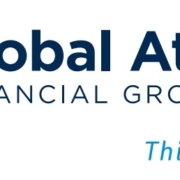Employee Stock Options – Independent Press – 02/02/11
The Independent Press
Money Matters – Skloff Financial Group Question of the Month – February 2, 2011
By Aaron Skloff, AIF, CFA, MBA
Q: My employer has awarded me numerous stock options over the years. When can I exercise these employee stock options and what are the tax ramifications?
A: The Problem. Many employers award stock options to attract and retain employees. Unfortunately, many employees do not truly understand the different types of options they are awarded and the tax ramifications associated with them.
The Solution – Understanding Employee Stock Options. An employee stock option is a right, but not a requirement, to purchase a stock at a specific price and specific time. Before you can exercise your options they must vest. Vesting is the right to buy shares from your employer over a set period of time, as defined in your grant agreement, before the options expire.
Not all employee stock options are created equal. Those differences could leave you quite wealthy and the I.R.S. disappointed or leave you somewhat wealthy and the I.R.S. happy. Let’s look at both types of options.
Incentive Stock Options (ISOs). In general, you do not have to pay taxes on Incentive Stock Options (ISOs) when they are exercised. You are subject to the 15% maximum capital gains tax rate instead of the maximum 35% maximum income tax rate (sorry I.R.S.) if you sell the ISO shares more than two years after the options grant date and more than one year after you bought the stock shares by exercising your ISOs.
Nonqualified Stock Options (NQSOs). In general, you pay taxes when you exercise your option. The amount of tax owed is based on your gain, the difference between your option’s exercise price and the price of the stock when you exercise your shares.
At this point, you can sell the stock. If you sell the stock in one year or less you can be subject to the 35% maximum short term capital gains rate (equal to the maximum income tax rate).
ISOs are generally more attractive than NQSOs, since they do not generate taxes when they are exercised. That said, the two year wait might occur when the stock price is in a downward spiral. Don’t Let the Tax Tail Wag the Investment Dog. Although tax management is critical, it is not paramount to maximizing profit.
Often Overlooked. Many stock option plans have clear language defining your rights about exercising your options upon termination from the company. Severance from a job can be an emotional time, when you may overlook a material part of your wealth – your employee stock options.
Aaron Skloff, Accredited Investment Fiduciary (AIF), Chartered Financial Analyst (CFA), Master of Business Administration (MBA) is CEO of Skloff Financial Group, a Registered Investment Advisory firm based in Berkeley Heights. He can be contacted at www.skloff.com or 908-464-3060.











